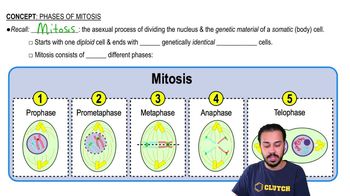Multiple Choice
Which of the following is the only essential function of the stomach?
20
views
 Verified step by step guidance
Verified step by step guidance Verified video answer for a similar problem:
Verified video answer for a similar problem:



 5:42m
5:42mMaster Gross Anatomy of the Stomach with a bite sized video explanation from Bruce Bryan
Start learning